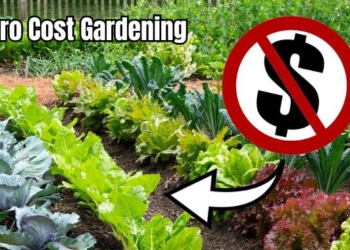Every choice we make can have a positive or negative effect on the world we live in. From choosing a car down to the type of apples you eat, it all matters. Thankfully, with the huge amount of information around, it’s becoming easier to make more sustainable decisions that have a smaller impact on our planet.
In this post, we’ve put together some tips on small changes you can make in your home to help you live a greener life.
Upcycle Furniture
Instead of buying new furniture, try to upcycle what you already have. You can easily change the look of a piece of furniture with some care and attention. Another option is to repurpose what you already have. Think outside the box to use old furniture in a completely new way.
If you’re not able to use what you already own, try buying something second hand. Flea markets, charity shops and online stores are filled with cheap gems that can be refurbished or in some cases, as good as new.
If you do have to buy something new, ensure it’s made from sustainable materials and will be longlasting. Avoid buying unreliable and mass-produced furniture and opt for handmade and hard wearing pieces.
Choose Eco-friendly Products
If you look hard enough, you should be able to find eco-friendly versions of pretty much every product you use. From cleaning goods to hair and beauty to paint, sustainable options are available that have little to no effect on the environment.
If you can’t find an eco-friendly product, see if you can make one yourself. A quick Google search will be able to tell you what you need and how.
A key feature to look out for is products with less packaging. Try switching to refillable bottles whenever possible. Products like shampoo, shower gel and coffee often come in lower-packaging alternatives so make these easy switches.
Opt For Energy Saving Electronics
The majority of appliances on the market come with an energy saving alternative. Look for the lowest energy output. They may be slightly more expensive upfront but can save you money in the long run. If you are replacing appliances, make sure to donate your old ones!
An easy and cost-effective change to make is to replace your lightbulbs with energy saving alternatives. They’ll last around ten times longer and use significantly less energy.
Switching to solar energy for your home will have a hugely beneficial effect on the environment. It cuts down on your use of fossil fuels and replaces them with a and renewable energy source.
Also, if you’re only going to need an appliance once, why not rent one instead of buying? There’s a huge number of sites where you can pick up pretty much anything on a day rate so save your money and the environment.
Buy Local
Buying food from ethical sources that are local to you can dramatically reduce your carbon footprint. Local food doesn’t have to be shipped which reduces carbon emissions.
Even when you go out for food, try to pick restaurants who locally source their ingredients.
Shopping locally also helps to support your local community. This might not be an environmental benefit but it is a social and economic one.
Grow Your Own Fruit & Veg

If you want to take your food to another level, why not try your hand at growing your own. In your own garden or an allotment, trying planting fruit and vegetables to reduce what you buy. Do some research into what can be grown in your climate as the temperature will have a huge effect on this.
If you’re limited on space in an apartment, you could plant an indoor herb garden. Not only will this improve your sustainability, but it will also improve the flavour of your food! Even small changes like a herb garden can have a big overall effect.
Using ingredients to cook from scratch rather than buying pre-made sauces will also have a positive effect cutting down on the number of ingredients in your meal and keeping everything natural.
Go Paperless
There are many benefits to the digital world we live in. With nearly 80% of people in the United States owning a smartphone, the need for paper products has dramatically dropped. Avoid printing unless necessary to cut down on the paper you use.
Try creating an online calendar and notepad. Once you get the hang of them, they’ll prove to be more reliable and organised than paper options.
Additionally, you can change your billing preferences to email to reduce the post you receive. This is usually done on your online account or by phone so take the time to change whichever bills you can. It’s also more secure and easier to keep track of.
If you receive any junk mail or unnecessary circulars, try adding a sign to your letterbox stating “No Junk Mail – Addressed Mail Only”. This should cut down on the unwanted post you receive.
Dispose of Rubbish Effectively
When it comes to rubbish, you should recycle everything you can. Check the packaging to find out what can be recycled and how. If there isn’t a collection for the rubbish, take it to a waste distribution centre to be recycled.
It’s estimated that around 40% of food in the US ends up in the bin. Food waste costs you money and has a negative effect on the planet from wasted production costs. Only buy what you need when shopping. Plan out your meals and make a shopping list to help you keep track. Check which foods can be frozen to prevent them from going off.
For food waste, create a compost pile. It’s a much more effective way of breaking down waste and can be used as a fertiliser in your garden.
If you have perfectly good things you want to get rid of, either donate them to a good cause or sell them. A yard sale is an effective way of having a clear out that will make you some money.
Leave the Car at Home
It’s common knowledge that cars release gases that are harmful to the environment. You can hugely reduce your carbon emissions by leaving your car at home.
If you’re travelling a short distance, consider walking or riding a bike. If you’re going a little further, public transport and car sharing is an effective way to avoid using your car.
In the modern-era of remote working, whenever possible, work from home to cut out your travel altogether.
If you do need to use your car, try to combine trips by running errands when already out instead of venturing out on separate journeys. Keep on top of your car maintenance. This will ensure your vehicle is in the best working order.
Save Water
In your home, there are so many ways you can cut down on the water you use. Installing a low-flow shower head and toilet can save thousands of litres of water every year.
Make sure your pipes are in top condition and don’t leak. The water wasted by leaking pipes will quickly add up, so make sure you don’t have any issues.
When brushing your teeth and shaving, avoid running the water when you don’t need it. Also, showers save a huge amount of water compared to baths, so opt for a shower whenever possible.
A water butt in your garden will also help to save water that you can use on your plants.
Insulation and Double Glazing
Insulation and double glazing are the most effective ways to keep your home warm in the winter and cool in the summer. They help to create a balanced temperature and reduce the need for air conditioning and heating.
Small changes can also be made by adding draught excluders around doors and windows as well as thick and insulated curtains.
Final Thoughts
Not only can living a more sustainable life have some hugely positive effects on the environment, but they can also save you some money. Try to make small changes where you can to do your part for our world.
Author Bio
David Atkinson is a content creator at Azutura, a leading manufacturer of eco-friendly wall murals.















